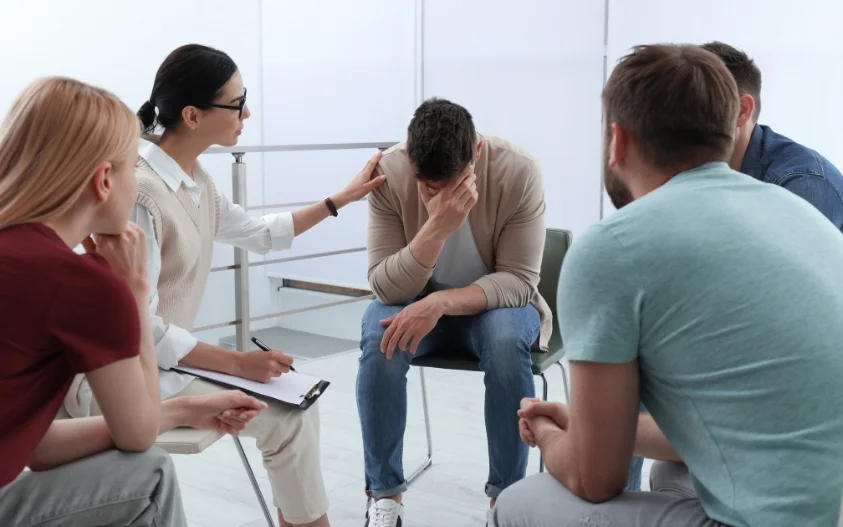24/7 Helpline:
(866) 899-221924/7 Helpline:
(866) 899-2219
Learn more about Codeine Detox centers in Mecklenburg County
Other Categories in Mecklenburg County

Other Insurance Options

Aetna

UMR

Kaiser Permanente

Premera

Magellan Health

Providence

Holman Group

Sutter

Excellus

Absolute Total Care

ComPsych

Horizon Healthcare Service

Magellan

Ceridian

PHCS Network

Molina Healthcare

GEHA

Private insurance

Evernorth

United Health Care

Carolinas HealthCare System Behavioral Health
Carolinas HealthCare System Behavioral Health offers a variety of mental health and substances abuse...

Hammett Counseling And Consulting
Hammett Counseling And Consulting is a public rehab located in Cornelius, North Carolina. Hammett Co...



































































Triple Play Farm
Triple Play Farm is a private rehab located in Davidson, North Carolina. Triple Play Farm specialize...

Crossroads Reentry Ministries – CRM
Crossroads Reentry Ministries - CRM is a Non-Profit rehab center located in Huntersville, NC. Crossr...































